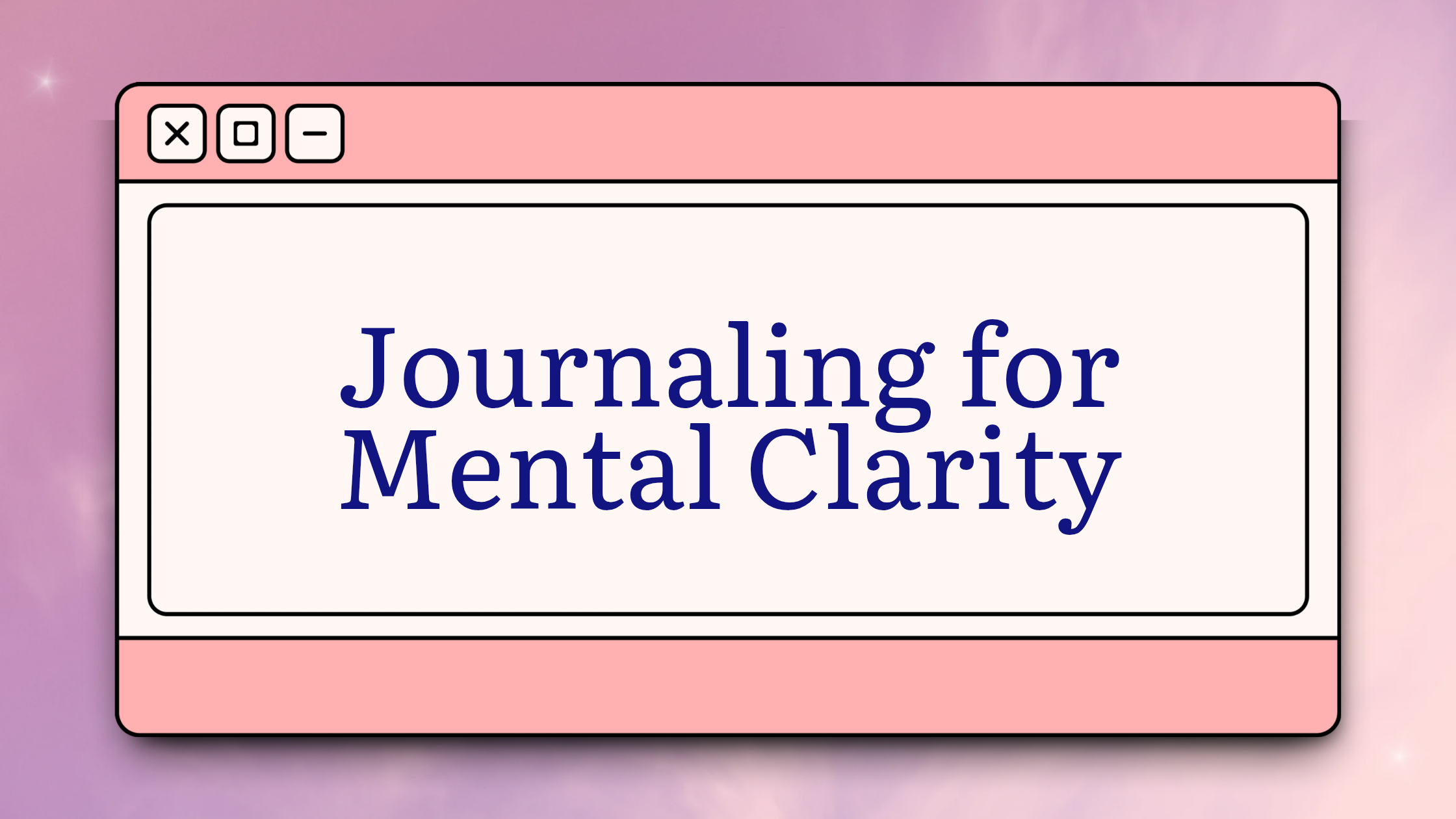Discover the powerful benefits of journaling for mental clarity and learn how to start this life-changing habit. Perfect for reducing stress, gaining focus, and improving emotional well-being.
Introduction
In a world filled with constant noise—social media notifications, deadlines, family responsibilities—it’s easy to feel mentally overwhelmed. Our brains are juggling too much information, leaving us anxious, unfocused, or just plain tired. That’s where journaling for mental clarity comes in. More than just putting pen to paper, this practice helps you sort through mental clutter, reduce stress, and find calm in chaos. Whether you’re a student, a professional, or a stay-at-home parent, journaling can be a simple yet transformative tool to clear your mind and boost your overall well-being.
What Does Journaling for Mental Clarity Mean?
Journaling for mental clarity refers to the practice of writing your thoughts, emotions, and experiences with the specific goal of organizing your mind. Think of it like a mental detox. Every thought or feeling that’s weighing you down has a place to land on paper, freeing up space in your brain for focus, peace, and creativity.
It’s not about writing a perfect story or keeping a beautiful diary. It’s about self-expression, honesty, and giving your inner thoughts the attention they deserve. When you journal with intention, your brain begins to process things in a clearer, more structured way. That’s when clarity kicks in.
Benefits of Journaling for Mental Clarity

Let’s break down the reasons why this habit is gaining popularity among psychologists, therapists, productivity experts, and even entrepreneurs.
1. Declutters Your Mind
One of the most noticeable benefits is the feeling of mental relief. When your brain is full of to-do lists, worries, and overthinking, journaling acts as a mental unloading zone. Getting things out of your head and onto paper can help you see your thoughts more objectively.
2. Reduces Stress and Anxiety
Writing about what’s bothering you gives those thoughts a safe outlet. Instead of bottling up emotions, you can express them freely without judgment. This simple act can lower your stress levels and reduce anxiety over time.
3. Improves Focus and Productivity
When your mind is clearer, you naturally become more focused. Journaling in the morning, for example, helps you identify your priorities for the day, making you more organized and less distracted.
4. Enhances Self-Awareness
By regularly journaling your thoughts and emotions, you begin to notice patterns in your behavior and mindset. Are certain situations triggering your anxiety? Are you constantly doubting yourself? Journaling reveals what’s going on beneath the surface.
5. Supports Emotional Intelligence
As you reflect on your emotions through journaling, you become more in tune with them. This leads to better emotional regulation, improved relationships, and a more balanced mood.
How to Start Journaling for Mental Clarity
Starting a journaling practice is easy, low-cost, and accessible to everyone. Here’s how you can begin today:
1. Choose Your Medium
Decide whether you want to use a classic notebook, a digital app, or even voice notes. While many people love the feel of handwriting, others prefer typing for speed and convenience. Pick what works for you.
2. Set the Mood
Create a comfortable space where you won’t be disturbed. Light a candle, play soft music, or simply sit in silence. The goal is to associate journaling with relaxation and reflection.
3. Start Small and Simple
You don’t need to write a novel. Begin with just five minutes a day. Try writing a few sentences about how you feel or something that’s been on your mind. Some great journaling prompts include:
What’s taking up most of my mental energy right now?
How do I feel today, and why?
What do I need to let go of?
4. Be Honest, Not Perfect
This isn’t a school assignment—there are no grammar rules or word counts. Your journal is a private space where you can be your true self. Don’t worry about how it looks or sounds. Just be real.
5. Make It a Habit
Like any other habit, consistency is key. Try journaling at the same time each day—first thing in the morning to set your intentions, or at night to reflect and unwind. You’ll soon notice how journaling for mental clarity becomes something you look forward to.
Common Myths About Journaling
“I’m not a writer.”
You don’t have to be. Journaling is not about fancy words or perfect sentences. It’s about expressing what’s going on in your head and heart.
“I don’t have time.”
Even writing one sentence a day is better than nothing. Mental clarity doesn’t require an hour-long session—it just needs intention and a few quiet moments.
“It won’t help me.”
Try it for one week. Just seven days. Most people who stick with it report better mood, focus, and emotional resilience.
Final Thoughts: Make Time for Your Mind
Journaling for mental clarity is one of the simplest and most powerful habits you can add to your life. It helps you slow down, make sense of your inner world, and gain the focus you need to handle whatever comes your way. In just a few minutes a day, you can dramatically improve your mindset, reduce stress, and increase emotional balance.
So the next time your mind feels messy or overwhelmed, remember: you don’t need to have all the answers. You just need a pen, a notebook, and a few quiet minutes. Clarity will follow.







